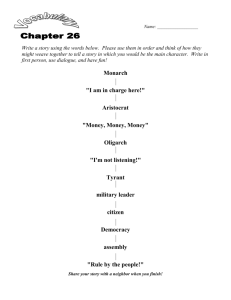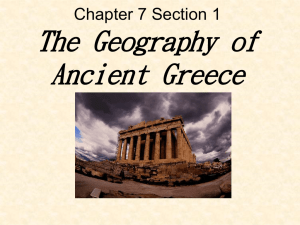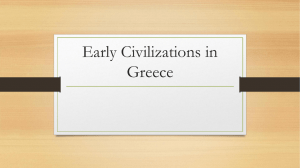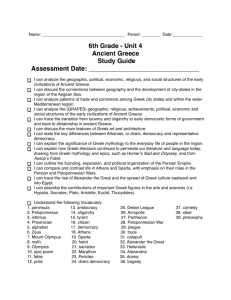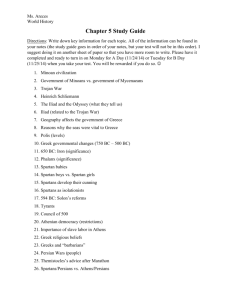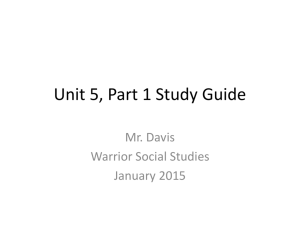Unit 3 Questions and Vocabulary
advertisement
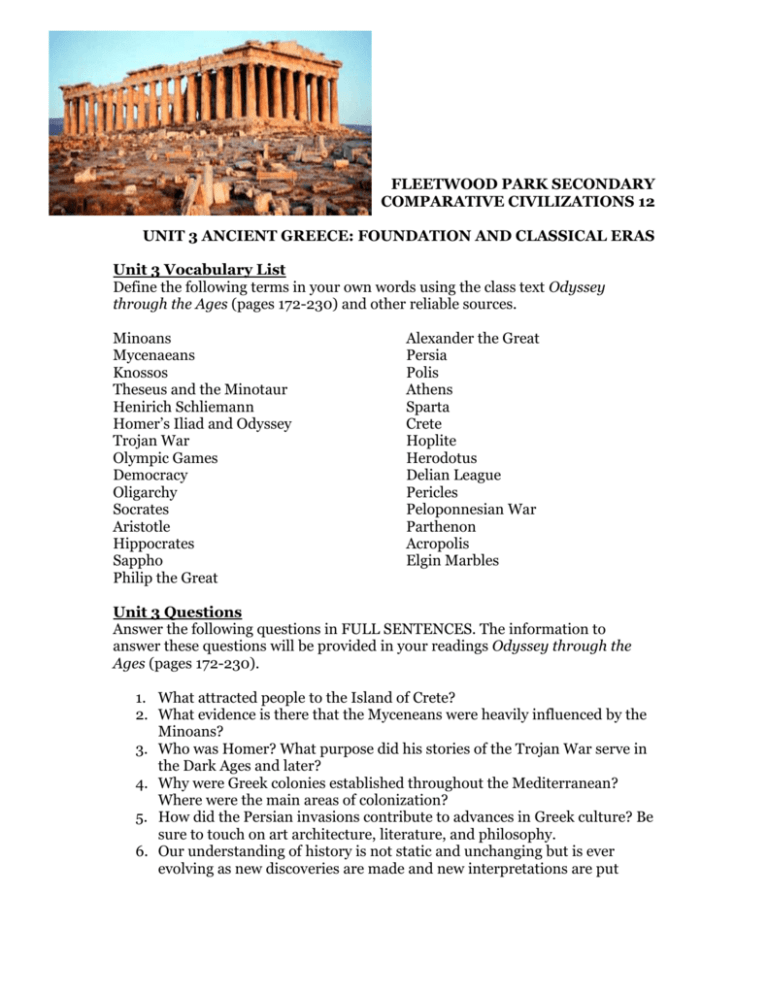
FLEETWOOD PARK SECONDARY COMPARATIVE CIVILIZATIONS 12 UNIT 3 ANCIENT GREECE: FOUNDATION AND CLASSICAL ERAS Unit 3 Vocabulary List Define the following terms in your own words using the class text Odyssey through the Ages (pages 172-230) and other reliable sources. Minoans Mycenaeans Knossos Theseus and the Minotaur Henirich Schliemann Homer’s Iliad and Odyssey Trojan War Olympic Games Democracy Oligarchy Socrates Aristotle Hippocrates Sappho Philip the Great Alexander the Great Persia Polis Athens Sparta Crete Hoplite Herodotus Delian League Pericles Peloponnesian War Parthenon Acropolis Elgin Marbles Unit 3 Questions Answer the following questions in FULL SENTENCES. The information to answer these questions will be provided in your readings Odyssey through the Ages (pages 172-230). 1. What attracted people to the Island of Crete? 2. What evidence is there that the Myceneans were heavily influenced by the Minoans? 3. Who was Homer? What purpose did his stories of the Trojan War serve in the Dark Ages and later? 4. Why were Greek colonies established throughout the Mediterranean? Where were the main areas of colonization? 5. How did the Persian invasions contribute to advances in Greek culture? Be sure to touch on art architecture, literature, and philosophy. 6. Our understanding of history is not static and unchanging but is ever evolving as new discoveries are made and new interpretations are put forward. Using the decline of the Minoans as an example, show this to be true. 7. Compare Athenian democracy to our system of government. Which system do you feel gives fairer government to the people? Which system do you think more efficient and productive? Would you like to see Canada adopt any aspects of the Athenian system of democracy? Why? 8. What were the major causes of the Greek-Persian wars? In what ways were these wars atypical of wars throughout history? 9. How did Athens use the fear of further Persian invasions to its advantage? 10. What was the outcome of the Peloponnesian War? What proved to be the decisive factor in determining the eventual victor? 11. Briefly summarize the major advances made by Greek artists during the fifth century B.C.E. 12. What role did the religion play in the daily lives of ancient Greeks? 13. How did trade enrich life in ancient Greece? Explain why coinage was a by-product of the development of extensive and complex trading networks. 14. Considering his talents and achievements, is Alexander deserving of the title “the Great”? 15. Compare and Contrast the role of women in ancient Greek society to that of the role of women in our society.

